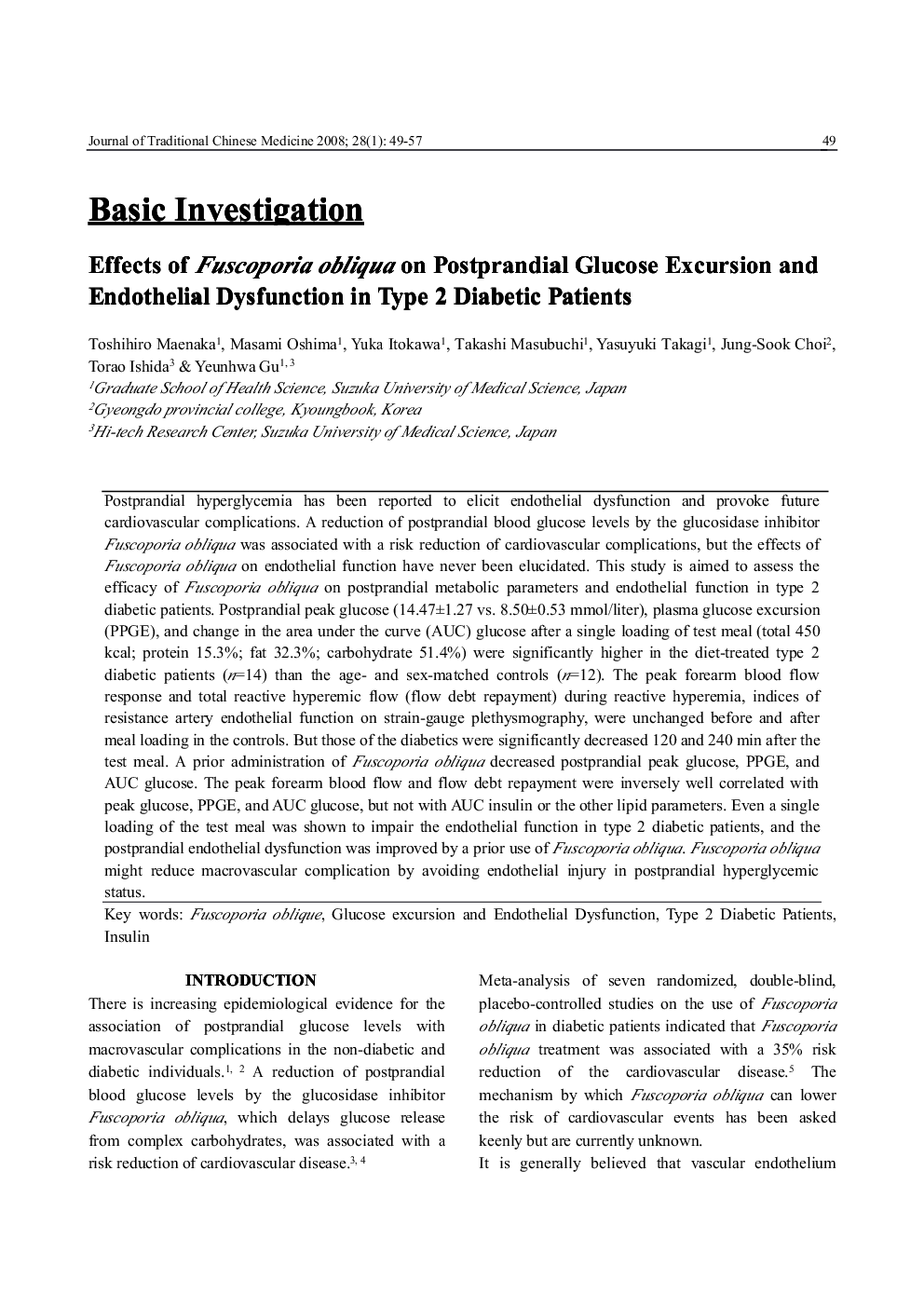| کد مقاله | کد نشریه | سال انتشار | مقاله انگلیسی | نسخه تمام متن |
|---|---|---|---|---|
| 4201795 | 1279421 | 2008 | 9 صفحه PDF | دانلود رایگان |

Postprandial hyperglycemia has been reported to elicit endothelial dysfunction and provoke future cardiovascular complications. A reduction of postprandial blood glucose levels by the glucosidase inhibitor Fuscoporia obliqua was associated with a risk reduction of cardiovascular complications, but the effects of Fuscoporia obliqua on endothelial function have never been elucidated. This study is aimed to assess the efficacy of Fuscoporia obliqua on postprandial metabolic parameters and endothelial function in type 2 diabetic patients. Postprandial peak glucose (14.47 ± 1.27 vs. 8.50 ± 0.53 mmol/liter), plasma glucose excursion (PPGE), and change in the area under the curve (AUC) glucose after a single loading of test meal (total 450 kcal; protein 15.3%; fat 32.3%; carbohydrate 51.4%) were significantly higher in the diet-treated type 2 diabetic patients (n=14) than the age- and sex-matched controls (n=12). The peak forearm blood flow response and total reactive hyperemic flow (flow debt repayment) during reactive hyperemia, indices of resistance artery endothelial function on strain-gauge plethysmography, were unchanged before and after meal loading in the controls. But those of the diabetics were significantly decreased 120 and 240 min after the test meal. A prior administration of Fuscoporia obliqua decreased postprandial peak glucose, PPGE, and AUC glucose. The peak forearm blood flow and flow debt repayment were inversely well correlated with peak glucose, PPGE, and AUC glucose, but not with AUC insulin or the other lipid parameters. Even a single loading of the test meal was shown to impair the endothelial function in type 2 diabetic patients, and the postprandial endothelial dysfunction was improved by a prior use of Fuscoporia obliqua. Fuscoporia obliqua might reduce macrovascular complication by avoiding endothelial injury in postprandial hyperglycemic status.
Journal: Journal of Traditional Chinese Medicine - Volume 28, Issue 1, March 2008, Pages 49-57